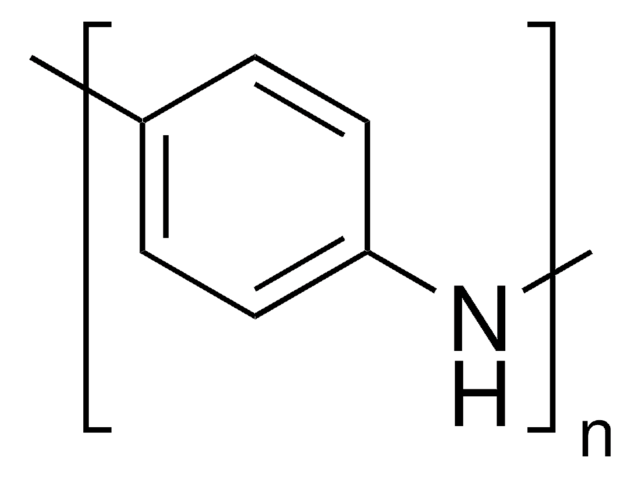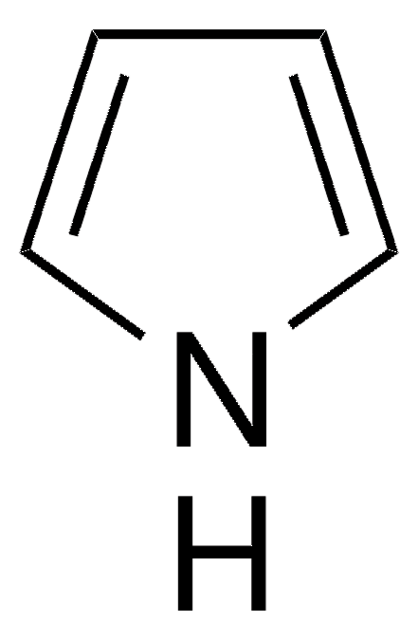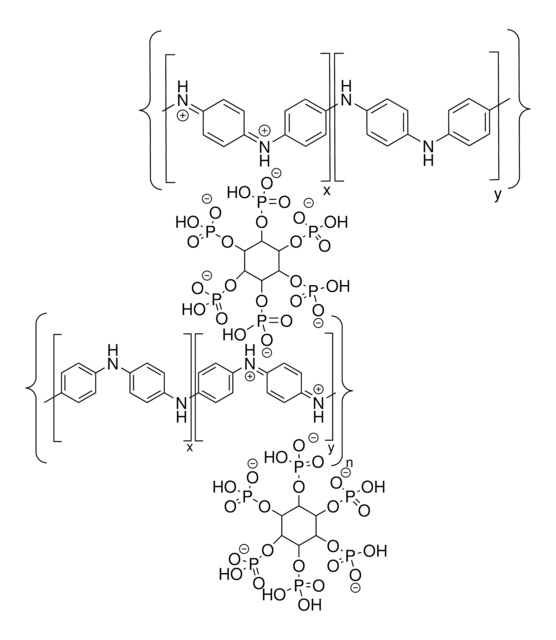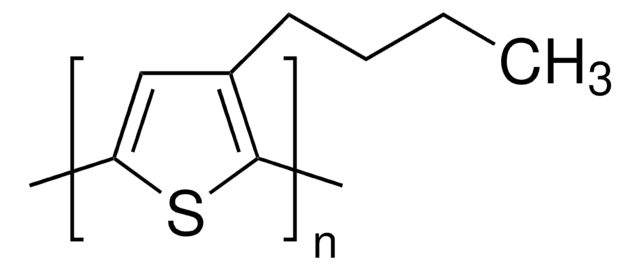482552
Polypyrrole
doped, 5 wt % dispersion in H2O, conductivity >0.005 S/cm (dried cast film)
Sinónimos:
PPy
About This Item
Productos recomendados
Quality Level
contains
proprietary organic acids as dopant
greener alternative product characteristics
Design for Energy Efficiency
Learn more about the Principles of Green Chemistry.
sustainability
Greener Alternative Product
concentration
5 wt % dispersion in H2O
greener alternative category
InChI
1S/C4H5N/c1-2-4-5-3-1/h1-5H
InChI key
KAESVJOAVNADME-UHFFFAOYSA-N
General description
- Ion exchange capacity.
- Electrochromic effects.
- Redox activity.
- Corrosion resistant.
- Catalytic activity.
Application
- conductive sensors for quality monitoring
- blended with nanotubes for supercapacitors
- nanowire actuators
- biosensors for drug delivery
- CO2 absorption materials
Packaging
Storage Class
10 - Combustible liquids
wgk_germany
WGK 3
flash_point_f
Not applicable
flash_point_c
Not applicable
ppe
Eyeshields, Gloves, type ABEK (EN14387) respirator filter
Elija entre una de las versiones más recientes:
¿Ya tiene este producto?
Encuentre la documentación para los productos que ha comprado recientemente en la Biblioteca de documentos.
Los clientes también vieron
Artículos
The application of conducting polymers at the interface with biology is an exciting new trend in organic electronics research.
While dye sensitization as the basis for color photography has been accepted for a very long time,1 attempts to use this principle for the conversion of solar light to electricity generally had resulted only in very low photocurrents, below 100 nA/cm2.2
For several decades, the need for an environmentally sustainable and commercially viable source of energy has driven extensive research aimed at achieving high efficiency power generation systems that can be manufactured at low cost.
Nuestro equipo de científicos tiene experiencia en todas las áreas de investigación: Ciencias de la vida, Ciencia de los materiales, Síntesis química, Cromatografía, Analítica y muchas otras.
Póngase en contacto con el Servicio técnico





